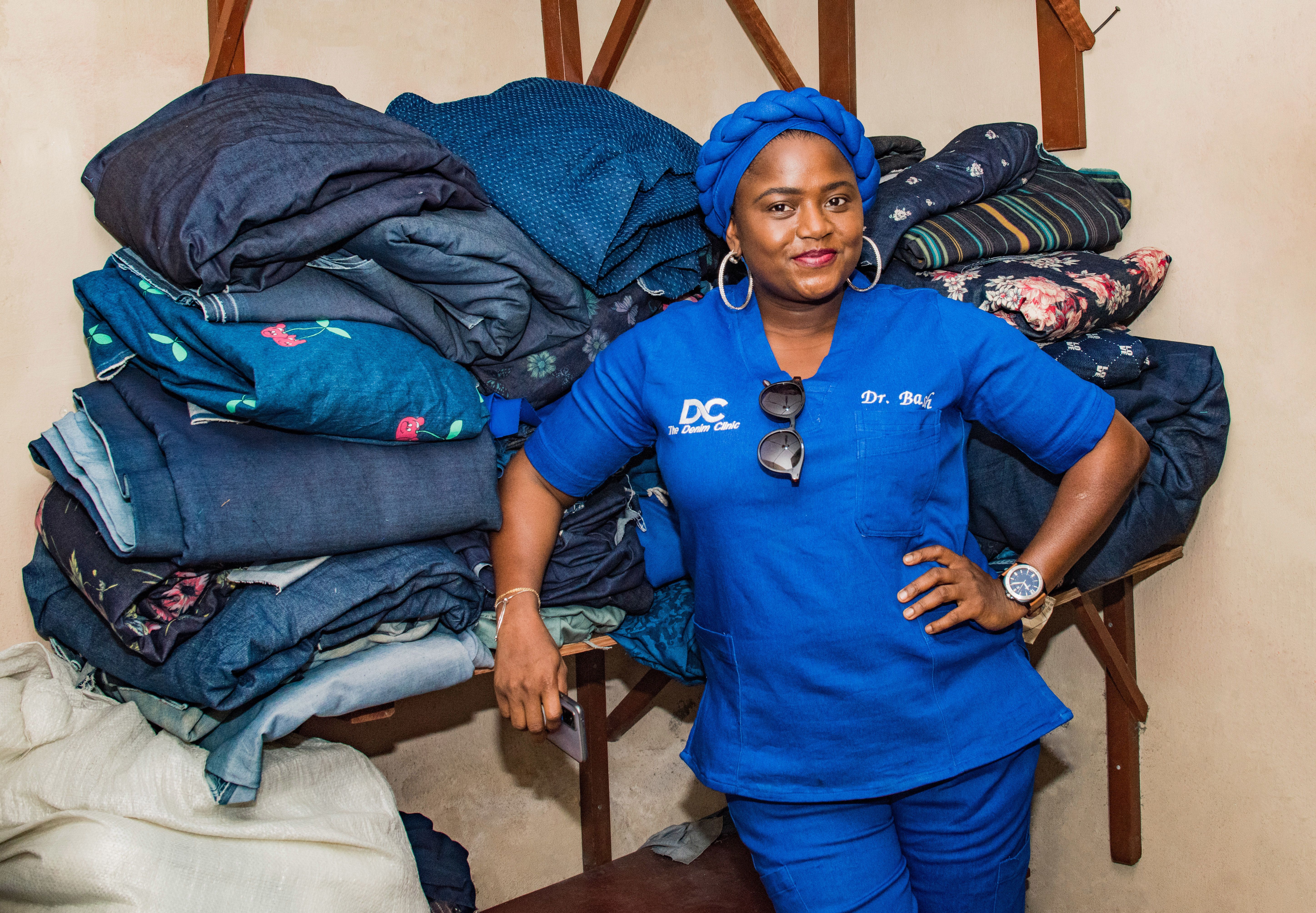Denim to denim: supporting circular denim practises in Nigeria

- Written byKatie Moss
- Published date 08 December 2022

In an era of fast fashion, the global demand for denim has a devastating impact on the planet. A staggering 2.3 billion pairs of jeans are sold each year and the production of each garment requires an immense amount of water and energy, resulting in significant levels of pollution.
The overproduction of denim, especially in the global north, has created a strong global market for second-hand denim. Whilst some unwanted garments are donated for resale in charity and vintage stores, the majority of denim products are exported to developing countries for recycling or repurposing.
Earlier this year, a project supported by UAL’s Fashion, Textiles and Technology Institute enabled a collaboration across denim related industries in the UK and Nigeria, to consider more sustainable solutions for denim production and contribute to a global dialogue around circular denim practices.
Denim to Denim is a virtual platform created to convene more marginalised voices in denim recycling—including tailors, menders, and up-cyclers—to explore and foster circular solutions for future denim design and production practices.
These communities, and increasingly important skills, play a key role in recycling textiles within the denim industry, but the informal nature of their work means they are often overlooked in more formal industry narratives. They work in challenging conditions and many of the project participants have no knowledge of the chemicals in the denim garments they were working with, and the possible implications on their health.
They were also initially unaware of the importance of their role in addressing the issues of environmental and social justice in the denim industry. Project teams used on-the-ground and online communication methods to distribute questionnaires, host meetings and webinars, and facilitate dialogue between both groups. These activities have enabled participants to share technical insights about design, production, utilisation, durability and life cycle, as well as experiences of working in the global denim value chain.
Other key recommendations included improving the durability of denim garments at production stage. For example, addressing the issue of ‘stretch denim’ usually composed of mixed fibre textiles – a fabric which is increasingly popular on global highstreets to meet the fit of all shapes and sizes, however is very difficult to recycle or upcycle due to the blend of synthetic fibres with cotton during the production of the woven denim material.
To recycle these fibres, the different material sources must be separated - a painstaking process which is almost impossible with current production processes, and industry technology. The project therefore highlights the importance of designing from the outset the appropriate materials necessary for a garment’s life in advance of garment production, taking into consideration longer term objectives of recycling, upcycling and longevity.
The Denim to Denim Project is one of 5 partnerships formed by the New Landscapes Pilot Scheme, led by UAL’s Fashion, Textiles and Technology Institute (FTTI) and supported by the British Council. 5 pairs of SMEs in the UK & ODA countries have received funding, academic research support and access to facilities to work on mutually beneficial projects that promote the cultural, social and environmental values of a sustainable global fashion and textiles sector. The Denim to Denim project was led by responsible-fashion consultant Jocelyn Whipple, and Sola Idowu, country co-ordinator for fashion activism organisation Fashion Revolution Nigeria.